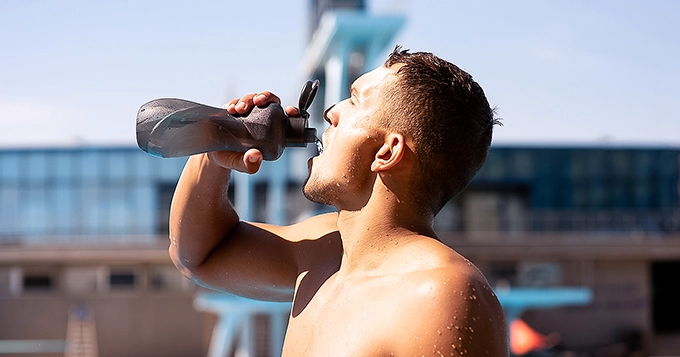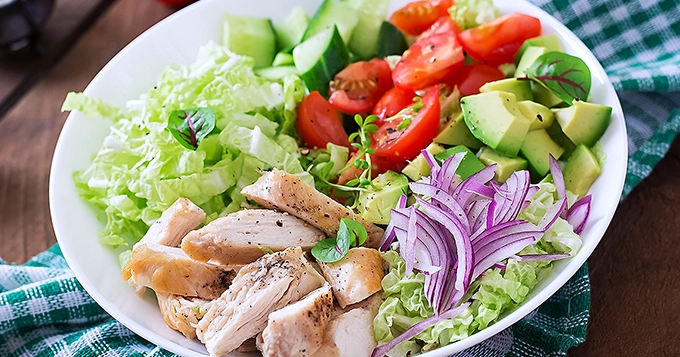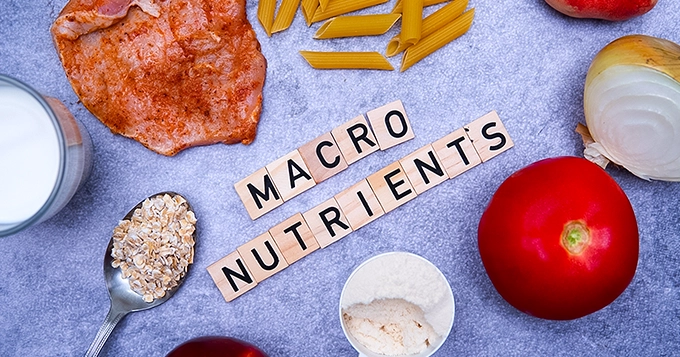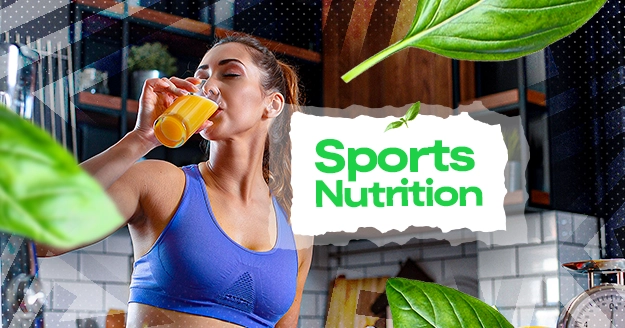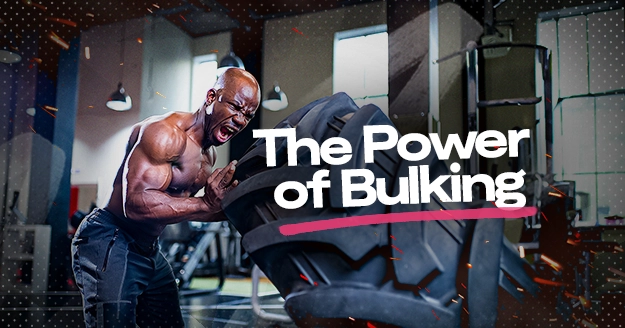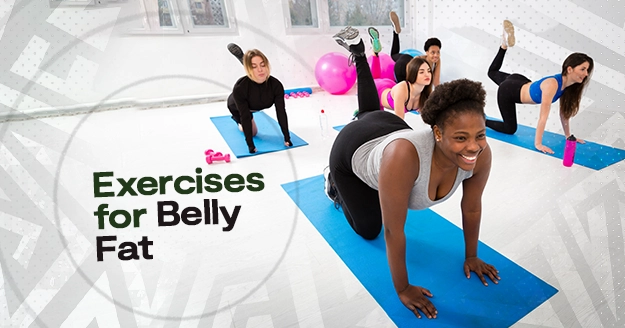When it comes to achieving the best possible athletic performance, sports nutrition plays a crucial role. This guide goes beyond the basics and explores advanced strategies for optimizing nutrition. Its goal is to help individuals make informed decisions about what they eat to reach their peak physical condition.
By delving deeper into the nuances of sports nutrition, this article aims to provide a comprehensive understanding of this crucial aspect of athletic performance.
Pre-Workout Fueling
Before starting your workout, providing your body with the proper fuel is essential. A balanced pre-workout nutrition for athletic performance with carbs, lean proteins, and healthy fats is ideal. This combination provides sustained energy, helps prime your muscles, and reduces the risk of fatigue during exercise. By choosing the proper pre-workout meal, you can enhance your performance and get the most out of your exercises.
Hydration
Staying hydrated is crucial for athletes, as even mild dehydration can negatively affect performance. Athletes should make it a habit to drink water regularly throughout the day and during exercise. It’s recommended that they consume 16-20 ounces of water 2 hours before exercise and then continue to drink 7-10 ounces every 10-20 minutes during exercise.
Sports drinks can also be consumed during exercise, providing energy and electrolytes essential for optimal performance.
Macronutrients
To create an effective sports nutrition plan, it’s crucial to understand the functions of macronutrients. These nutrients – carbohydrates, proteins, and fats – play a significant role in fueling your body during exercise and helping it recover afterward. By understanding each macronutrient’s role, you can make informed decisions about what to eat before, during, and after workouts to optimize your performance.
- Protein
Protein is crucial for building and repairing muscle tissue, and it can be found in foods like meat, eggs, dairy products, poultry, and fish.
Athletes should aim to consume around 1.2 to 1.7 grams of protein per kilogram of their body weight daily, depending on their sport, training program, and goals. Consuming protein after a workout can promote muscle recovery and growth. Protein provides the amino acids needed to repair and rebuild the muscle tissue that has been used during exercise. This is essential for improving strength and endurance.
- Fats
Fat is an essential nutrient for athletes as it provides energy during prolonged exercise. Nuts, seeds, avocados, and oily fish are good fat sources. Athletes should aim to consume between 20-35% of their daily calories from fat.
However, choosing healthy fats such as monounsaturated and polyunsaturated fats found in foods like avocados, avocado oil, olive oil, and fatty fish like salmon is ideal. It’s also important to limit the consumption of saturated and trans fats in processed foods and animal products like butter and red meat. By making smart choices about fat intake, athletes can support their energy needs during exercise and promote overall health.
- Carbs
- Endurance: Athletes engaging in prolonged endurance activities can use carbs to ensure ample glycogen stores for sustained energy.
- Strength and Power: Those involved in strength and power sports may fall on the lower end of the range, around 45-55%, focusing on maintaining adequate protein intake for muscle development.
Post-Workout Recovery
Post-exercise nutrition is a critical component of sports nutrition. Consuming a mix of carbohydrates and proteins within the first hour after training helps replenish glycogen stores, reduces muscle protein breakdown, and promotes muscle repair. This aids in faster recovery, preparing your body for the next session.
Supplementation Strategies
Many athletes use supplements to enhance nutrition and athletic performance, but it’s crucial to be cautious as some supplements may contain banned substances or have harmful side effects. Before taking any supplements, athletes should consult with a sports nutritionist or healthcare professional.
Some commonly used supplements by athletes include creatine, caffeine, beta-alanine, and BCAAs.
- Creatine provides energy to the muscles during high-intensity exercise, helping to increase strength and power.
- Caffeine is a stimulant that improves focus, alertness, and endurance, commonly found in tea, coffee, and energy drinks.
- Beta-alanine is a naturally occurring amino acid. It can help to buffer lactic acid during high-intensity exercise, improving endurance and delaying fatigue.
- BCAAs are essential amino acids that promote muscle growth and recovery. It helps reduce muscle soreness and promote muscle repair.
Athletes should be aware of the potential side effects of supplements and ensure they are using them safely and effectively as part of a balanced sports nutrition plan.
Micronutrients
Micronutrients refer to vitamins and minerals the body requires in very small amounts for proper functioning. These nutrients play an essential role in maintaining overall health and well-being.
The best foods for athletes performance are those that can provide you with a good amount of essential micronutrients.
Athletes have heightened nutritional requirements due to the physical demands of their sport. To ensure an adequate intake of vitamins and minerals, athletes should consume various fruits, vegetables, whole grains, and lean protein sources.
Some athletes may also benefit from multivitamins or mineral supplements to meet daily requirements. Getting enough vitamins and minerals can help athletes maintain optimal health and performance during training and competition.
Individualized Nutrition Plans
Athletes have specific nutritional requirements based on their sport, body composition, and training intensity. To create an individualized nutrition plan that meets their unique needs, athletes can consult with a registered dietitian or nutrition specialist.
This personalized approach considers the athlete’s preferences, dietary restrictions, and performance goals to develop a tailored nutrition plan that supports their training and helps them achieve their objectives. By working with a nutrition specialist, athletes can ensure they fuel their bodies appropriately for optimal performance.
Conclusion
The basics of sports nutrition are a crucial part of any athlete’s training program.
This indicates that athletes should eat a balanced diet that includes carbohydrates, protein, fat, vitamins, and minerals to optimize performance and aid recovery. Hydration and appropriate supplement use are essential to a successful sports nutrition plan.
Moreover, Athletes can enhance their health and well-being by prioritizing nutrition and supplement use, boosting athletic performance, and achieving training objectives.
And remember, consulting with a sports nutritionist or healthcare professional can be helpful in developing a personalized diet or nutrition plan that meets the unique requirements of each athlete.
